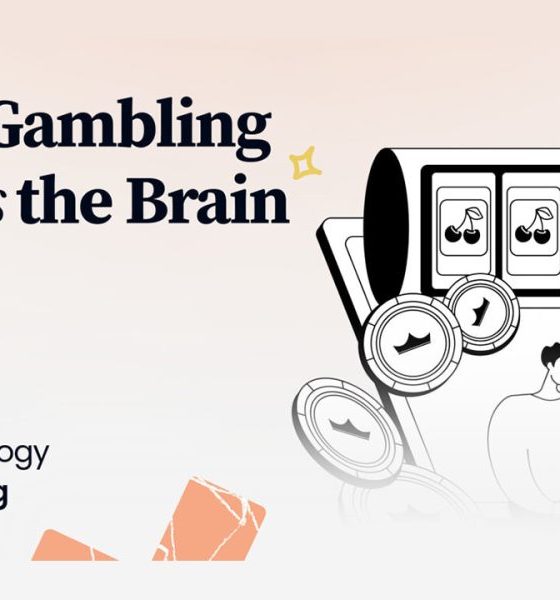

gaming habits
Slotozilla Conducts Study on Psychology of Gambling
Slotozilla has conducted a study on the psychology of gambling, uncovering the hidden influences that shape player behavior. The latest study offers fresh insights into the cognitive and emotional triggers behind gambling decisions, shedding light on the psychological mechanisms at play.
Statistical data combined with psychological analysis show how gambling activates the brain’s reward center and releases dopamine, which is associated with pleasure and motivation. Key findings include:
• 49% of Americans participated in some form of gambling in the past year.
• 26% visited a casino, while 20% placed a sports bet.
• Near wins stimulate the brain similarly to actual victories, leading to an increase in bet size by 3.28 credits and a faster spin time of 0.66 seconds after a near-miss.
Cognitive biases play a crucial role in gambling behavior. The illusion of control leads players to believe their choices impact random outcomes, while the gambler’s fallacy makes them think a losing streak must end with a win. These biases create a compelling yet sometimes deceptive gaming experience.
Additionally, gambling can impact emotional well-being. The study found that gambling initially increases pleasure and excitement, but as play continues, it can lead to stress, financial problems, and even addiction. The six stages of gambling-related mood changes include:
• Initial Excitement: A rush of pleasure from the thrill of winning.
• Return to Natural Mood: The excitement fades, leading to repeated play.
• Increased Stress: Frequent gambling creates financial and emotional burdens.
• Loss of Enjoyment: Gambling no longer feels as thrilling.
• Lowered Mood and Depression: Gambling fails to bring joy, affecting everyday life.
• Lost Ability to Enjoy Normal Activities: Emotional health declines significantly.
Pathological gambling alters two main brain areas:
• Ventromedial Prefrontal Cortex (vmPFC): Influences decision-making and risk-taking.
• Striatum: Shows increased activity even during losses, reinforcing the urge to keep playing. While casual gamblers experience normal brain activity, problem gamblers develop a rewired reward system, responding to losses and near-misses as if they were wins. In the US, 1-4% of adults are estimated to have gambling-related problems
Slotozilla believes that understanding the psychology behind gambling is essential for players, operators, and regulators alike. With responsible gaming at the core of their mission, the aim of Slotozilla is to provide insights that help players make more informed decisions and recognize the factors influencing their gaming habits.
The post Slotozilla Conducts Study on Psychology of Gambling appeared first on Gaming and Gambling Industry in the Americas.
-

 gaming3 years ago
gaming3 years agoODIN by 4Players: Immersive, state-of-the-art in-game audio launches into the next generation of gaming
-
EEG iGaming Directory8 years ago
iSoftBet continues to grow with new release Forest Mania
-
News7 years ago
Softbroke collaborates with Asia Live Tech for the expansion of the service line in the igaming market
-
News6 years ago
Super Bowl LIII: NFL Fans Can Bet on the #1 Sportsbook Review Site Betting-Super-Bowl.com, Providing Free Unbiased and Trusted News, Picks and Predictions
-
iGaming Industry7 years ago
Rick Meitzler appointed to the Indian Gaming Magazine Advisory Board for 2018
-
News6 years ago
REVEALED: Top eSports players set to earn $3.2 million in 2019
-
iGaming Industry8 years ago
French Senator raises Loot Boxes to France’s Gambling Regulator
-
News7 years ago
Exclusive Interview with Miklos Handa (Founder of the email marketing solutions, “MailMike.net”), speaker at Vienna International Gaming Expo 2018

















